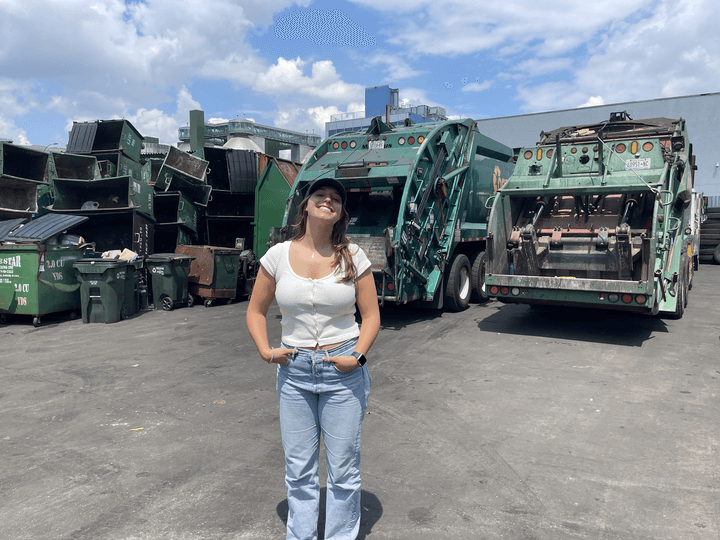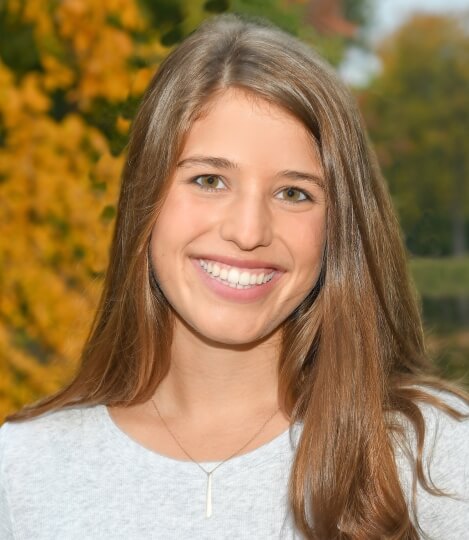News
Sofia Giannuzzi, A.B. '25, spent her summer developing an AI chatbot for CurbWaste, a software start-up in the waste management and hauling industry.
After two years studying computer science at the Harvard John A. Paulson School of Engineering and Applied Sciences (SEAS), Sofia Giannuzzi was looking for a summer internship that would allow her to build her AI programming skills. She never expected to find that opportunity within the waste management industry.
This summer, Giannuzzi interned at CurbWaste, a tech start-up in New York that allows dumpster-hauling companies to track orders and pricing.
“It was really interesting to see how a tech start-up could grow out of an area I’d never thought of before,” said Giannuzzi, a rising third-year student. “There are so many tech start-ups launched left and right, and they’re coming from people in industries who recognize a gap.”
Giannuzzi developed an AI chatbot for CurbWaste’s application, which would allow companies to type their needs into the app and have the chatbot automatically generate orders. She’s been developing websites and apps since high school, but this project required her to learn new skills while still drawing on both of her concentrations -- computer science and English.
“I had to take a lot of what I’ve learned about making fast, space-efficient algorithms,” she said. “It started as an intern task, but became a much larger thing that involved a lot of teams. A lot of times I felt like I was writing essays on why a project should be a certain way, and what research backs that up. It’s definitely rooted in a Harvard liberal arts education that comes before the technical side, and you need both to launch a successful product.”
Sofia Giannuzzi, A.B. '25
Giannuzzi’s approach mirrors the systems thinking philosophy taught throughout SEAS. Before she started programming, she first had to do extensive research on CurbWaste’s customers and their needs. Only after that could she formulate a clear problem statement and construct a chatbot that addressed it.
“A lot of the people who place orders at hauling companies work on construction sites or are contractors,” she said. “I had to think about all the different ways they could say ‘I need a 20-yard dumpster dropped here.’ We went to a hauling company at one point, and I asked them if I could look at their emails for orders. They were always like five-word sentences, and I had to train the chatbot to interpret what that meant.”
Giannuzzi never expected to work in waste management and the experience changed how she’ll approach looking for jobs and internships in the future.
“One thing that really hit home for me while working for CurbWaste was how passionate everyone was about the product,” she said. “Our CEO had his own hauling company and recognized a problem that needed to be fixed, and everyone else on the team had the same mentality. Going forward, I only want to work on products or for companies with that same mindset.”
Topics: AI / Machine Learning, Computer Science
Cutting-edge science delivered direct to your inbox.
Join the Harvard SEAS mailing list.
Press Contact
Matt Goisman | mgoisman@g.harvard.edu




